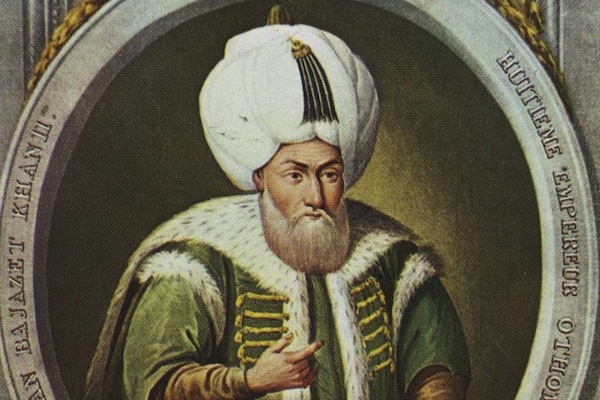Bayezid II, the sultan of the Ottoman Empire, saved my family’s life during the Spanish Inquisition. The Israeli government could learn a thing or two from him.
By Tom Pessah

I am a Jew of Sephardic origin, which means the defining moment of my family’s history was their expulsion from Spain in 1492. I still have relatives who speak Ladino, the Jewish language that evolved out of medieval Spanish and was preserved in the countries the Jews arrived in. We have our own dietary customs and liturgical traditions.
For years, I only heard about the villains in this story — Ferdinand II of Aragon and Isabella I of Castile — religious zealots who expelled the Jews and Muslims who refused to convert to Christianity from the newly re-conquered Spain.
But no one ever taught me about Bayezid II, the sultan of the Ottoman Empire at the time of the expulsion. In August 1492, he sent his navy to Spain to evacuate the expelled Jews to the empire, where he granted them permission to settle and become citizens. He sent a special decree to the governors of his European provinces, ordering them to receive the Jewish refugees well. Bayezid reportedly criticized the Spanish rulers for rejecting the Jews: “You venture to call Ferdinand a wise ruler, he who has impoverished his own country and enriched mine!” The sultan even provided economic assistance to pay ransom for Jews who had been kidnapped.
Bayezid was generous toward the Jews who suffered persecution, but he also saw their potential contribution to his empire. And indeed, the resettled Jews flourished under Ottoman rule, with the much-needed skills they carried from Spain. Jews, including my family, have been the beneficiaries of this humane, far-sighted policy of accepting refugees.
It is hard not to contrast Bayezid’s policies with those of the modern State of Israel. In 1948 the majority of its Palestinian population were expelled, and the return of millions of refugees is still prevented through violence. Although Israel is a signatory of the 1951 U.N. refugee convention, the country never developed a serious, systematic policy for granting asylum to refugees.

Today Israel is preparing to deport 40,000 refugees from Eritrea and Sudan to Rwanda and Uganda, without guaranteeing them any form of permanent status. This means they are likely to be kidnapped, enslaved, or killed upon reaching their new home. This has been the fate of many African refugees Israel expelled in the past.
Israel’s policies toward refugees have been harsher than those of the United States and most European countries, as well as those of Lebanon and Jordan. Of the 2,408 Eritreans in Israel who have requested refugee status, only four (0.16 percent) have received a positive reply. The rest were either denied or are still waiting for a response. Meanwhile, only a tiny fraction of Sudanese asylum seekers have received protection from the state. Internationally, 84 percent of Eritreans and 56 percent of Sudanese asylum seekers either received refugee status or were granted extended protection in the first half of 2014, according to the United Nations refugee agency, the UN High Commissioner for Refugees.
The moral is clear: as Jews, we could not have survived episodes like the expulsion from Spain had we been subject to policies like those of the Israeli government. We must draw on the lessons of our own history and ensure the government immediately halts its plan to deport tens of thousands of asylum seekers.
Tom Pessah is a sociologist and activist.
